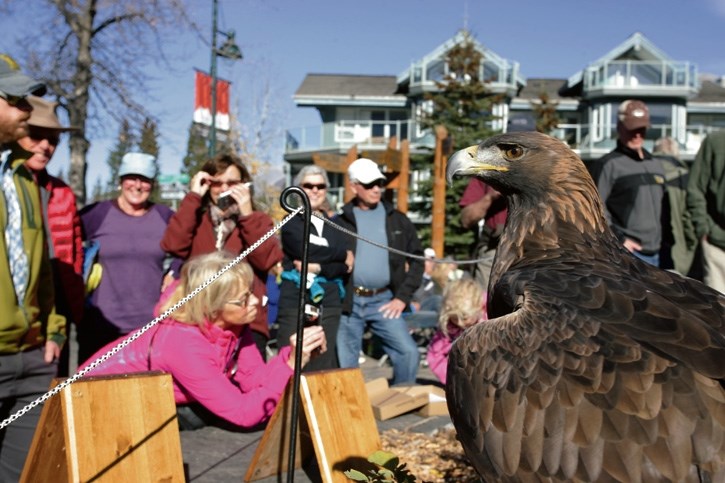Golden eagle populations have sharply declined since 1995, although they now seem to be stabilizing, according to research by the Rocky Mountain Eagle Research Foundation (RMERF).
Peter Sherrington, the RMERF’s research director, said during the peak of the species’ migration from Montana to Alaska and the Yukon, they sight upwards of 200 golden eagles per day.
“This is a world-class phenomenon,” said Sherrington. “People spend all day twiddling their thumbs on their twitter machines, completely unaware.”
When the organization started tracking the eagles, RMERF observers were counting upwards of 4,000 golden eagles per season. Last year’s count showed just more than 2,500 – an indication that the eagle’s declining population speaks to the health of their ecosystem.
“In many ways, golden eagles are the canary in the coal mine, metaphorically,” said Sherrington.
While many of the birds have met a rather sticky end as they winter in the U.S., getting caught in leg-hold traps meant for coyotes or being hit by trucks, Sherrington said the eagles’ declining population has more to do with the snowshoe hare populations in Alaska and the Yukon.
As their primary food source, any change to the environment that affects the snowshoe hare is directly reflected in the golden eagle population.
“If the predators are healthy, the ecosystem is healthy,” said Sherrington.
While the eagles’ population is no longer declining, according to recent evidence, it is still only about 60 per cent of what it was when the RMERF started its observations in 1992, and their migratory pattern is still being affected by the changing environment.
“Climate change is very real, and we can see it,” said Sherrington.
In a 10-year period, a pair of golden eagles will only raise four of five offspring, according to Sherrington.
And, while the birds have a maximum lifespan of more than 30 years, a 2000 study of golden eagles in the western Rockies by the Journal of Field Ornithology showed that nearly 95 per cent died by the time they were 11 years old, and less than half made it to the age of three.
Sherrington likens the current troubles of the golden eagle to the disappearance of the peregrine falcon in the 1950s to ’70s.
Peregrine falcons feed on smaller birds that, in turn, eat pests as well as small seeds and grains.
Because of their position as top predators, though, the falcons were becoming contaminated with increasingly high concentrations of DDT and other pesticides, through a process known as biomagnification.
The birds the falcons preyed on consumed insects and plant matter, which had been infected by the organochlorine in the pesticides.
Because the toxins are quite difficult to break down, they accumulated in higher concentrations as they moved up the food chain.
The toxins made the falcons’ eggshells thinner and, as a result, fewer eggs survived to hatching.
Peregrine falcon populations eventually began to return after the use of DDT was banned, though not without herculean breeding programs.
The RMERF’s findings are collected and stored at the University of Calgary, though they are available to the public for free on their website, eaglewatch.ca. The organization is currently celebrating its 25th year of operation, and is inviting the public to join them on their observations, which run until April 22.




